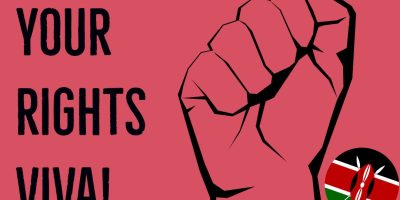Update on 5th November 2020: Crowd1 Responds To Claims of Scam
Days after the report was released about Crowd1 collapsing and disappearing with its members’ money, the company officially released a statement stating they are not a pyramid scheme in any way.
According to Crowd1, the major cause of the drama was a delay in some of its product launches due to the COVID-19 pandemic.
“Another part of BBC’s false accusations and allegations is that Crowd1 sells financial investment products to people in low-wage countries. That is not true. Crowd1 offers tools for people to make money in the form of marketing digital products. All remuneration is thus based on work effort and performance,” Crowd1 says in its statement.
The company went further to record a video with some of its executives to explain what their business is about. However, it is important that all this is taken with a pinch of salt since none of it is confirmed yet.
The Story
Many Kenyans can associate with the aspect of pyramid schemes that have been planting themselves in the country for quite a while. What these companies have proven to do in common is coming in with the promise of making their prospective member/investors rich in a snap. This is what one company Crowd1 came in to do and has now left dozens of people stranded in losses and harder financial situations than they were in.
This was revealed after an investigation by BBC Africa Eye team, who disguised themselves as interested members who were looking to get in on the get-rich-quick action. Crowd1 as a firm so far appears to have made huge chunks of money for its European scammers who operated at the top.
Now after a couple of years, the scheme has seemingly disappeared leaving a long trail of debt and losses in Kenya, South Africa and Nigeria.
Crowd1 had been promising its potential investors a supply of “educational material” allegedly supplied by a third-party firm Grithub. This educational pack is then meant to provide you with insights on how to become a multimillionaire.
For one, Regina, who lives in South Africa, this was an opportunity to change her life and there was no way to turn it down. So, once Crowd 1 reached out, Regina’s mother chose to pay KES 30,000 for the package. They were then promised to start receiving payments of up to KES 100,000 as returns of their shareholding.
“They called them shares and told us that every three months we would get an amount in our accounts like a salary and they would send us clips every month of winners getting their money. People making around KES 100,000 a month,” Regina recalls.
The BBC Eye team then chose to get the first-hand experience by investing some KES 200,000 in an educational plan. This package was supposed to have earned them close to 700k over a couple of months. But when it came to the payday, they only received KES 300 of the money initially put in.
Crowd1 has been known for its aggressive social media marketing, one that had amassed it a huge number of followers over the years across developing nations in Asia and Africa.
From experience, it’s clear that the company also knew that many countries have some sort of legislation against pyramid or marketing schemes that have nothing to sell.
This is why Crowd1 was disguised as one that sells an educational programme. In reality, the whole content was plagiarised from a real estate self-help book by author Phil Pustejovsky, selling at KES 1000 on Amazon or completely free on other websites.
To attract even more people, Crowd1 had been claiming to be in partnership with various companies. However, this tactic turned out to expose them even more as most of them turned to be inoperational.
This includes Affilgo, an online betting company and Miggster, a mobile gaming platform. As it turns out, these two just have websites that contain nothing but blurbs stolen from Wikipedia.
One of the known brands mentioned as a partner by Crowd1 was PremierBet. But when asked, the betting firm said, “We are not in partnership with Crowd1 or Affilgo.”
The team dug even deeper to try and talk to some of the individuals operating at the top; Renze Deelstra, Johan Von Holstein and Jonas Werner.
After various inquiries, the common statement from the trio was that Crowd1 was not a pyramid scheme in any way. “Crowd1 does not make money from recruitment, but from these sales. All our products are genuine,” the organisation said.
This is all while bearing in mind that Renze Deelstra and his associates ran off never to be found once the COVID-19 pandemic hit when they were presented with evidence from the investigations.





I invested in Crowd 1 platform for 2 months, instead of 45 minutes promised, I am here, still battling to get my money back